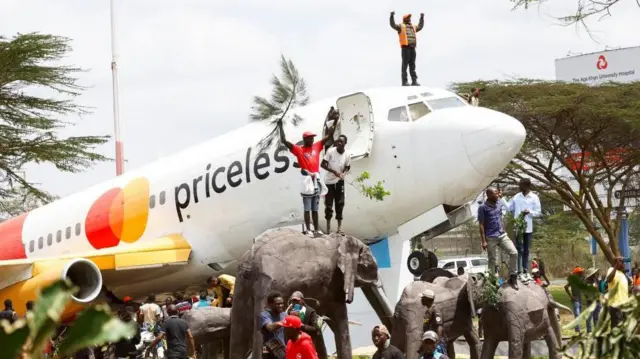
Kenya came to a standstill on Thursday as thousands of mourners flooded the streets of Nairobi to receive the body of Raila Odinga, the revered opposition leader whose death has plunged the nation into grief.
The 80-year-old veteran politician, long regarded as the conscience of Kenyan democracy, died on Wednesday in southern India after reportedly suffering a heart attack during a medical visit.
As Odinga’s coffin arrived at Jomo Kenyatta International Airport, an immense crowd of supporters surged toward the tarmac, chanting his name and waving flags in tribute. The Kenya Civil Aviation Authority was forced to temporarily suspend all flights to “restore order and ensure safety,” officials said.
Initially, Odinga’s body was to lie in state at Kenya’s Parliament Building, but the plan was abruptly altered when thousands of mourners overwhelmed security barriers and climbed the gates in a desperate bid to pay their respects. Authorities later relocated the coffin to Kasarani Stadium, where larger crowds could gather safely.
President William Ruto declared seven days of national mourning in honour of Odinga, who contested the presidency five times and spent decades shaping Kenya’s political landscape as a tireless advocate for reform, justice, and national unity.
“Raila Odinga’s legacy transcends politics — he embodied resilience, courage, and hope for generations of Kenyans,” President Ruto said in a statement.
Government officials announced that “public grieving spaces” would be opened across Nairobi and other major cities ahead of Friday’s state funeral, expected to draw dignitaries and mourners from across Africa.
Odinga’s death marks the end of an era in Kenyan politics — and the beginning of a week of reflection for a nation mourning one of its most enduring and influential figures.



